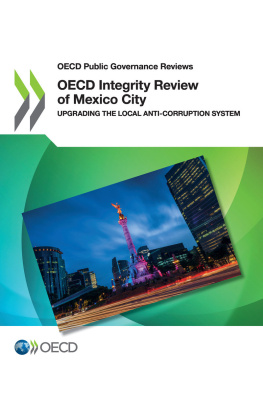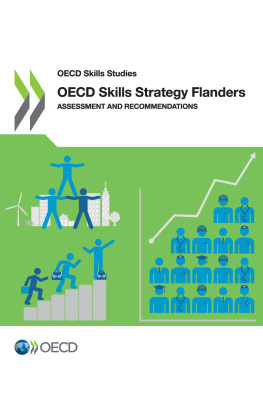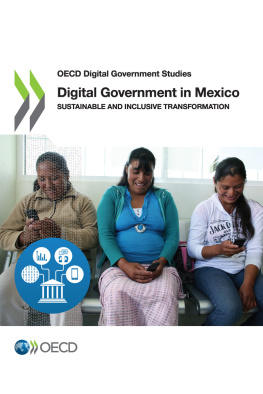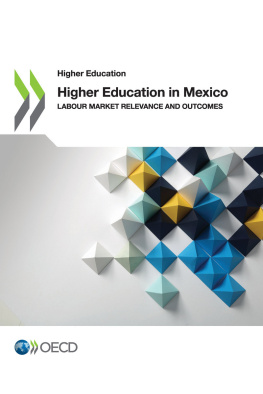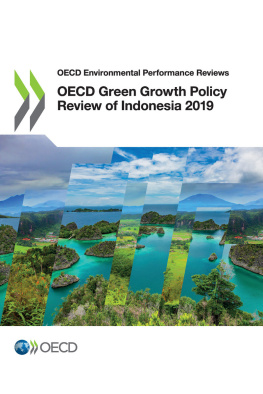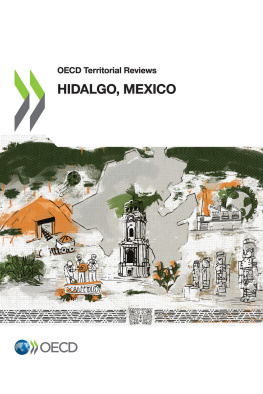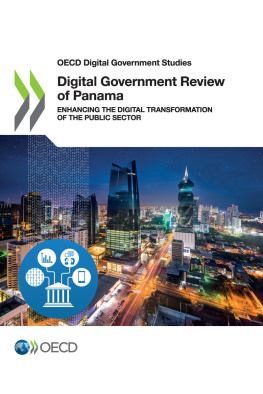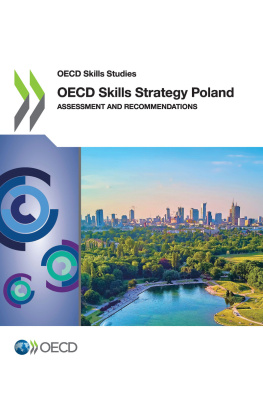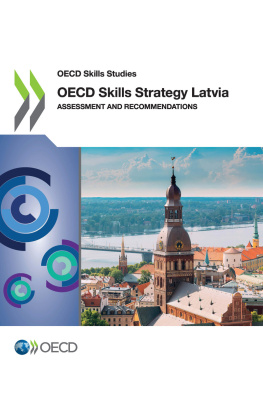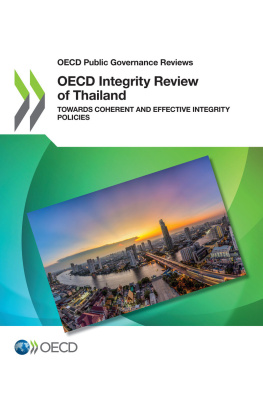OECD - OECD Integrity Review of Mexico City
Here you can read online OECD - OECD Integrity Review of Mexico City full text of the book (entire story) in english for free. Download pdf and epub, get meaning, cover and reviews about this ebook. year: 2019, publisher: OECD Publishing, genre: Politics. Description of the work, (preface) as well as reviews are available. Best literature library LitArk.com created for fans of good reading and offers a wide selection of genres:
Romance novel
Science fiction
Adventure
Detective
Science
History
Home and family
Prose
Art
Politics
Computer
Non-fiction
Religion
Business
Children
Humor
Choose a favorite category and find really read worthwhile books. Enjoy immersion in the world of imagination, feel the emotions of the characters or learn something new for yourself, make an fascinating discovery.
OECD Integrity Review of Mexico City: summary, description and annotation
We offer to read an annotation, description, summary or preface (depends on what the author of the book "OECD Integrity Review of Mexico City" wrote himself). If you haven't found the necessary information about the book — write in the comments, we will try to find it.
OECD: author's other books
Who wrote OECD Integrity Review of Mexico City? Find out the surname, the name of the author of the book and a list of all author's works by series.
OECD Integrity Review of Mexico City — read online for free the complete book (whole text) full work
Below is the text of the book, divided by pages. System saving the place of the last page read, allows you to conveniently read the book "OECD Integrity Review of Mexico City" online for free, without having to search again every time where you left off. Put a bookmark, and you can go to the page where you finished reading at any time.
Font size:
Interval:
Bookmark:
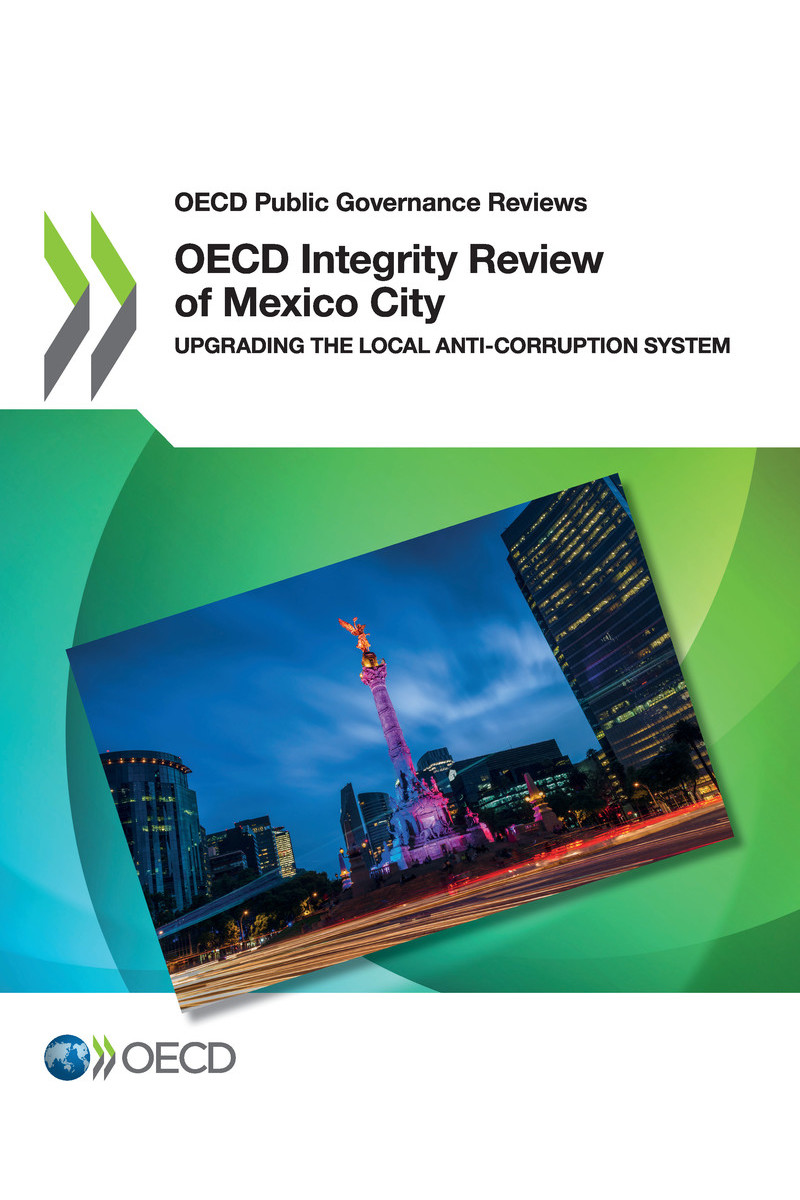
OECD (2019), OECD Integrity Review of Mexico City: Upgrading the Local Anti-corruption System , OECD Public Governance Reviews, OECD Publishing, Paris.
https://doi.org/10.1787/9789264306547-en
The 2017 OECD Recommendation of the Council on Public Integrity recognises integrity as a cornerstone of good governance. Integrity is essential for economic and social well-being and for the prosperity of individuals and society. By enacting the Law on the Local Anti-corruption System of Mexico City, the Government of Mexico City has demonstrated its commitment to strengthening its integrity system.
The active engagement of sub-national governments is crucial if the National Anti-corruption System is to realise its full potential. Federal states and municipalities in Mexico are responsible for a variety of public services that influence the quality of life and the business environment. Vital public utilities, such as potable water, drainage, sewerage, street paving, public lighting, marketplaces and public cemeteries, are the responsibility of local governments. In addition, local governments have the authority to regulate economic activities such as construction, town planning and business licenses.
According to a 2017 survey carried out by the National Institute for Statistics and Geography (INEGI), a vast majority of citizens in Mexico City consider corruption to be an endemic problem. The perception of abuse of office and corruption can have devastating effects on citizens trust in government. If adequately implemented, the Local Anti-Corruption System will not only fight corruption and increase sustainable economic and social development, but strengthen the rule of law and restore trust in government and public institutions.
The OECD Integrity Review of Mexico City is the second sub-national OECD Integrity Review conducted in Mexico and provides a comprehensive assessment of the local integrity system. It offers policy recommendations to maximise the efficacy of the Local Anti-corruption System. It also calls for sustained efforts to create a culture of integrity, including setting up an effective control and risk management framework, encouraging stakeholder engagement, monitoring and evaluating integrity policies, safeguarding public procurement and optimising value for money in this activity.
This review examines good international practices that can help guide Mexico City authorities as they roll out the Local Anti-corruption System. It encourages the adoption of an integrity approach based on data and evidence, including identifying priority areas for action and evaluating the system to better inform policy and future reforms.
The main challenge for Mexico Citys government is to translate the anti-corruption laws and regulations into real change. The new system may take time to achieve its full potential, but its real impact will depend on its inclusiveness and on the governments capacity to create a culture of integrity, not only in the public sector, but in the private sector and in society as a whole.
Mexico City, the biggest metropolitan area in the country, should take a leading role in local governments fight against corruption. The OECD is ready to support the implementation of the policy recommendations included in this report and to help to monitor its progress to ensure that they are successfully accomplished.
Under the direction and oversight of Marcos Bonturi, OECD Director for Public Governance, and Jnos Bertk, Head of the Public Sector Integrity Division, this review was co-ordinated by Jacobo Pastor Garca Villarreal, Senior Policy Analyst, with the support of Julio Bacio Terracino, Deputy Head of the Public Sector Integrity Division. The authors of the chapters were Felicitas Neuhaus, Jennifer Eddie, Kenza Khachani, and Natalia Sandoval Pea.
Valuable comments were received from Frdric Boehm, Juan Pablo Bolaos, Giulio Nessi, Levke Jessen-Thiesen, Frederic St. Martin and Fabiola Perales, who also supported the fact-checking process. Editorial assistance was provided by Thibaut Gigou and Meral Gedik. Alpha Zambou, Rania Haidar, Edwina Collins, and Pauline Alexandrov provided administrative assistance.
The OECD expresses its gratitude to the Government of Mexico City for its fruitful co-operation and leadership. In particular, the OECD would like to thank Mayor Jos Ramn Amieva Glvez, former Mayor Miguel ngel Mancera, Comptroller-General Eduardo Rovelo Pico, as well as the entire team and all the departments of the government of Mexico City involved in this process, namely the Office of the Comptroller General of Mexico City, the Chief Administrator Office ( Oficiala Mayor ), the Attorneys Office ( Procuradura General de Justicia de la Ciudad de Mxico ), and the ministries of Finance, Education, Health, Social Development, and Public Works and Services of Mexico City. Likewise, the OECD would like to thank other institutions whose representatives were interviewed during the fact-finding missions, namely the Legislative Assembly, the Superior Audit Office of Mexico City, Delegations, and the Institute for Transparency, Freedom of Information, Personal Data Protection and Accountability of Mexico City (InfoDF). Luis Antonio Garca Caldern, General Director for Internal Control in Public Entities, served as the contact point of the Office of the Comptroller General to follow up the co-operation. Ambassador Mnica Aspe and Maya Alejandra Camacho Dvalos, from the Permanent Delegation of Mexico to the OECD, were instrumental in supporting the OECD in this project.
This review is part of a series of governance reviews in OECD and G20 countries. It is also part of a series of sub-national reviews in Mexico to advance good governance and public integrity. The review benefited from inputs provided by senior officials from Mexico Citys Office of the Comptroller-General, state legislators, business chambers, civil society organisations, and ministries of the government of Mexico City.
Font size:
Interval:
Bookmark:
Similar books «OECD Integrity Review of Mexico City»
Look at similar books to OECD Integrity Review of Mexico City. We have selected literature similar in name and meaning in the hope of providing readers with more options to find new, interesting, not yet read works.
Discussion, reviews of the book OECD Integrity Review of Mexico City and just readers' own opinions. Leave your comments, write what you think about the work, its meaning or the main characters. Specify what exactly you liked and what you didn't like, and why you think so.

